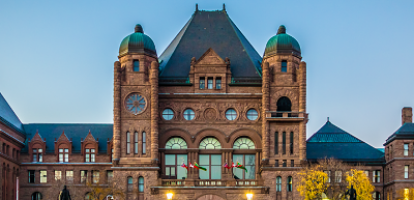Canada’s Crown corporations form a major part of the economy, but rarely draw detailed scrutiny. In his latest C.D. Howe Institute Commentary and in this special Intelligence Memo series, Fellow-in-Residence Glen Hodgson sets out principles for effective governance for Crowns. Today, we examine the case of Export Development Canada.
From: Glen Hodgson
To: Overseers of Crown Corporations
Date: June 14, 2021
Re: How is EDC Performing on Crown Governance?
My recent C.D. Howe Institute Commentary on Crown corporation governance provides a framework for understanding the governance of Crown corporations. This short case study of Export Development Canada draws on available public documents, and the public statements from the shareholder government, along with media sources. I have been engaged with EDC off and on for decades and was on team that did the 2018-19 EDC review on behalf of the federal government.
EDC’s performance on Crown governance is solid overall. While there are a few areas for improvement, EDC and its shareholder are generally well aligned on both framework governance and the use of specific governance instruments.
Framework governance defines a Crown corporation’s purpose, market positioning, operating powers, and financial relationship with its shareholder government. Ideally it also includes a commitment to a regular review, with public discussion. To our knowledge, in the early 90s EDC became the first federal Crown to have a formal review added to its governing legislation. Such reviews each decade make it much easier to assess overall performance.
EDC’s policy purpose is clear; to facilitate and grow Canadian international export trade and investment. Canadian exporters compete for business in foreign markets, so EDC can also be in frequent and often subtle competition with foreign export credit agencies.
EDC is positioned in a number of different ways with respect to its financing and insurance products. It actively competes in the export credit insurance market where the other major participants in Canada are foreign-owned and controlled insurers. The corporation says it competes not based on price, but on its customer service throughout the business cycle. It also competes in the surety market where insurance, bonding and/or guarantees support Canadian construction firms as they pursue and build international and Canadian projects. Its surety products and conditions may differ from those offered by foreign (largely US) firms operating in Canada.
Over time it has developed a complementary role in many aspects of export finance, working closely with Canadian banks to build overall market capacity for trade finance in Canada. EDC is also empowered to make equity investments in support of Canadian trade capacity, although it generally does so selectively as a minority investor in opportunities led by the private sector.
EDC’s governing legislation details overall governance structure and accountability relationships, its detailed operating powers, and its financial relationship with its shareholder, the federal government via the Minister for International Trade. The Minister of Finance oversees EDC’s financial foundations and its role in the Canadian and global financial system.
The Canada Account is a distinctive feature under EDC’s legislation that has drawn public attention on occasion, most recently by financing Trans-Mountain Pipeline transaction. Under Canada Account, EDC manages credit in deals it would not normally undertake that are deemed to be in the national interest. Transactions are jointly approved by the Minister for International Trade and Minister of Finance, or require Cabinet approval if over $50 million.
With respect to the application of specific governance instruments, assessing EDC’s performance is straightforward, another benefit of the regular legislative review. EDC and its shareholder generally make of use of the specific governance instruments outlined in the Commentary.
There is invariably room for improvement. EDC’s legislation still states “the President shall be appointed by the Governor in Council to hold office during pleasure for such term as the Governor in Council considers appropriate.” This language is not aligned with good practice in corporate governance, whereby a Crown CEO should be appointed (and if necessary dismissed) by the board, in consultation with the minister and the government. The shareholder is also not directly represented on EDC’s board (a point of debate in the Commentary) so EDC should be making special efforts to keep relevant government departments and ministers informed of its activities.
In addition, there should be close alignment between the annual written policy guidance from the Minister for International Trade, EDC’s annual corporate plan (that must be approved by the minister and government), and the metrics used to report on business and policy outcomes in its annual report. Reviews should be completed with parliamentary discussion.
Beyond governance, EDC could use its strong financial foundation and profitability to enhance its risk-taking capacity in support of Canadian exporters.
Overall, EDC and its federal government shareholder have gone a long way toward implementing desirable governance practices, providing a useful example of good practice in Crown governance. Its strong business and financial results confirm that a commitment to solid Crown governance practices can be good for business too.
Glen Hodgson is a senior fellow at the C.D. Howe Institute.
To send a comment or leave feedback, email us at blog@cdhowe.org.
The views expressed here are those of the author. The C.D. Howe Institute does not take corporate positions on policy matters.





